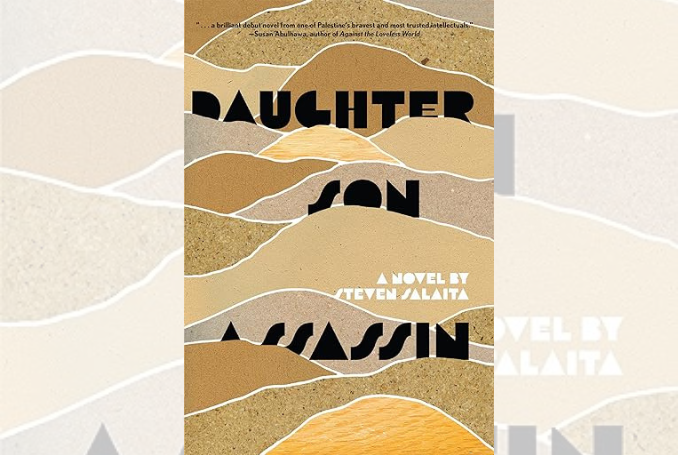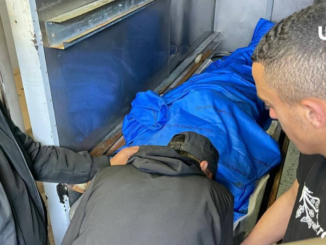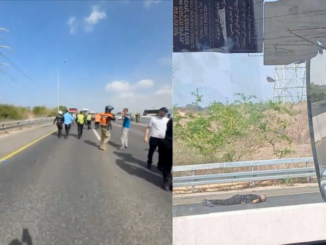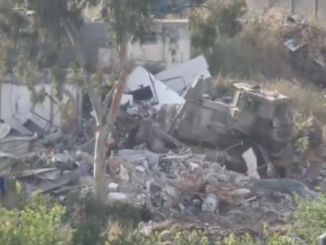
By Benay Blend
At the core of the novel there is a central question: What do we inherit from our ancestors, and what do we leave behind?
At first glance, Steven Salaita’s Daughter, Son, Assassin could be about any immigrant family in the hinterlands of America’s suburbia. Delving deeper, Salaita covers everything that is at the core of Palestine in 2024, peeling back the layers without ever once mentioning its name.
For Salaita, Palestine is a moral/geographic center, thus it is always absent/present, always inherent in the reader’s conscience, always affecting the world, but nevertheless remains unnamed, dependent on the reader’s imagination to inscribe it.
Better known for his sharp political analyses, Salaita has turned to fiction to construct a path for those who want to be on the right side of history but do not know how to navigate through “Israel’s” hasbara (propaganda). Defined by Mary Turfah as psychological warfare that fabricates an enemy so monstrous as to justify any form of aggression as self-defense, atrocity propaganda is the opposite of atrocity testimonial.
Salaita also charts a blueprint for breaking out of a career that requires civility but lacks a moral code. As director of the Geostrategic Partners Institute, financed by the Kingdom, what Salaita calls a “mishmash” of various Arab potentates, her father’s “work was conventional” (p. 5) but actually required imagination. “It’s not easy,” Nancy learns “to write a paper that’s inoffensive to all sides of a conflict” (p. 5), thus alluding to the “bothsidesism” that afflicts many commentators today.
The novel centers on Fred/Fared, father of Nancy, a young girl who is trying to find her way after her father disappears. After exposing the repressive Gulf Kingdom that has funded his career, Fred regains his self-respect but most certainly will lose his life when representatives from that regime kidnap him and then dump him in the desert.
As Nancy grows to adulthood amid the anonymity of a Virginia suburb, she begins to question what life has taught her. Seeking to break the generational trauma that plagues so many Palestinian families, her mother Lara provides her daughter with what she hopes is a typical American childhood.
As Nancy learns more about her father’s fate, he becomes less of an “abstraction” (p. 16), sort of the way she felt about Palestine. Eventually, she decides to avenge his disappearance by assassinating the King’s Ambassador who was most responsible for his death. “In order to achieve a sense of belonging in this decomposing world,” she would eventually have “to commit a murder” (p. 16). Salaita’s novel is both an allegory and a blueprint for committing murder (or perhaps both); he leaves it to the reader to decide.
In an interview, Salaita explains that he turned to writing fiction because it offers more opportunities for ambiguity than his previous works, more openings to use his imagination. By leaving so many questions unanswered, Salaita also invites the reader to speculate in many different ways.
More to the point, there are several takeaways that provide lessons for activists today. As France and Germany ban pro-Palestinian demonstrations, and more activists fear a potential ban elsewhere, solidarity groups face going it alone in the wake of shunning by more moderate factions. Academics, too, are losing their jobs over what Natasha Lennard calls “The New McCarthyism” that targets pro-Palestine faculty who lack tenure.
Because she knew that confiding in others might be detrimental to her project, Salaita’s protagonist holds fast to her ideals while carrying out an act that would not be socially approved. As such, she provides a blueprint for those who are targeted for their views, especially groups who support all forms of resistance, a position that is not upheld widely.
Lacking a support group to approve her actions, Nancy looks back to ancestors who left a legacy of resistance. From her great-grandfather who was a war hero sentenced to death by the enemy, from her father who sacrificed his life to expose corruption in the Kingdom that paid his wage, Nancy’s inheritance would serve her well when she decides to assassinate the Ambassador who is close to the parties who caused her father’s death.
For those of us without familial role models, there are plenty of Palestinians who could serve that role instead. As Salaita notes, recalcitrance is a trait that runs through at least three generations of Nancy’s family, providing a politics of intergenerational connection that Nancy and her father come to organically on their own.
Because she has no siblings, Nancy finds a substitute in her friend Elena, an immigrant like herself but from Eritrea. Elena provides the friendship that Nancy needs, but not the kind of activism that she would need to carry out her task.
Elena wants to change the world, and believes that she can do so by changing institutions from within. Nancy is far too cynical to follow her friend’s lead; instead, she seeks to alter the status quo, an undertaking that goes against many social norms.
Moreover, Elena returns to her homeland Eritrea to visit family. Nancy’s birthright came in the form of dispossession from a faraway homeland to which cannot return. Her mother tries to raise her free of the pain that such a legacy might cause.
“Our family, our people,” Nancy explains, “had suffered generations of trauma. It was baked into our DNA. Mom wanted to halt the transmission of those genes. Dad did, too, until history caught up with him” (p. 168).
“From an early age, (Nancy) lacked all sense of kinship, but at the same time [she] knew, down to the ripple of her capillaries, that blood wasn’t a neutral subject” (p. 16). So in the end Nancy comes full circle as she seeks to avenge her father’s death along with the violence caused by colonialism before him.
At the core of the novel there is a central question: What do we inherit from our ancestors, and what do we leave behind? When Nancy’s father started questioning what he would leave for Nancy, he decided that exposing corruption in the Kingdom would teach her the value of dissent, even though it would deprive her of a father.
“Dad’s life had taught me that it was impossible to make change without breaking skin” (168), Nancy recalled, thus her father’s legacy, too, was to privilege all forms of resistance, including armed. Moreover, as she stalks the Ambassador around the environs of D.C., she learns that committing a crime has very different contexts depending on location and participants.
As Nancy accepts her father’s gift, she experiences a transformation. “No longer the protagonist in a tedious saga of denial, [she] now could narrate [her] own desires” (p. 86), a lesson that Edward Said imparted in his essay “Permission to Narrate” (1984), a call for Palestinians to seize the opportunity to tell their own story rather than allow others to speak for them.
As governments crack down harder on Palestinian organizing, it is more important now than ever to remain on what feels like the right side of history while at the same time, honoring Said’s appeal to yield the authority to Palestinians who are best equipped to narrate their own lives.
In the end, Nancy rejects the false dichotomy that too often perceives Palestinians as either victim or terrorist, and the former, writes Mohammed El-Kurd, are utilized in what he calls “the politics of appeal.” By murdering the Ambassador, who she says represents a “class of sanctified people” who stand in the way of change, Nancy hopes to “open the possibility of joy and indulgence” (p. 169), a sentiment that is not often attributed to Palestinians these days, though it is certainly there.

– Benay Blend earned her doctorate in American Studies from the University of New Mexico. Her scholarly works include Douglas Vakoch and Sam Mickey, Eds. (2017), “’Neither Homeland Nor Exile are Words’: ‘Situated Knowledge’ in the Works of Palestinian and Native American Writers”. She contributed this article to The Palestine Chronicle.







